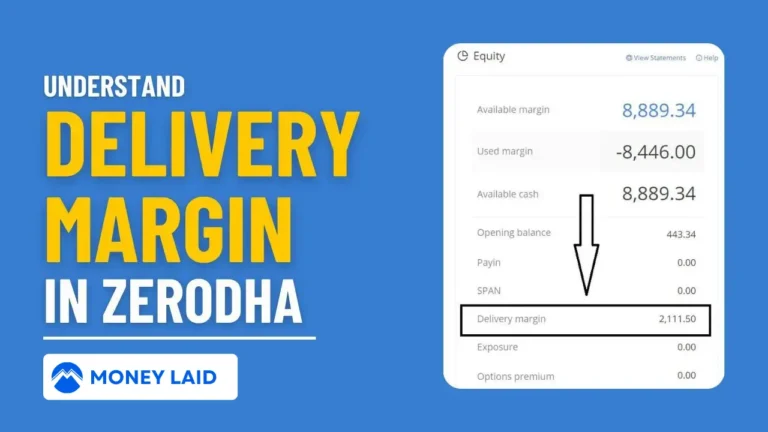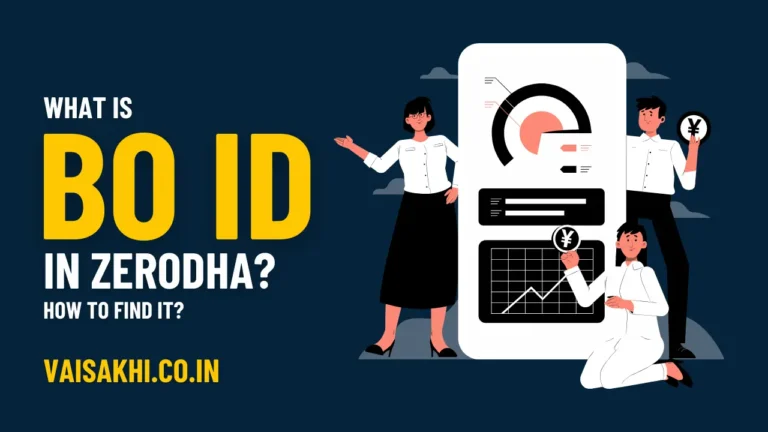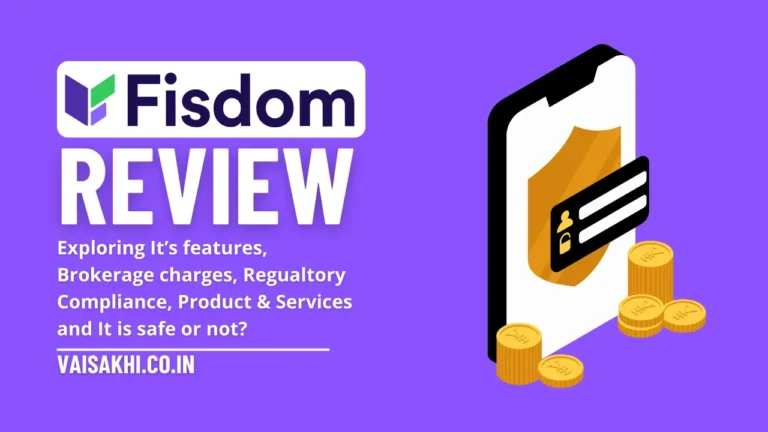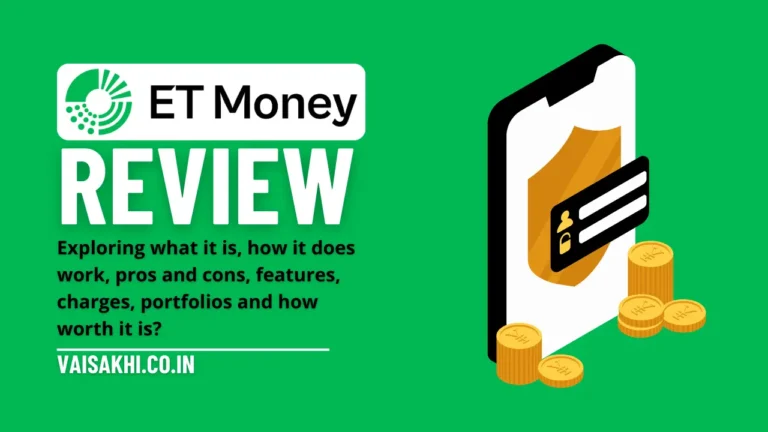Upstox App Review 2025: Is Upstox SEBI Registered?
Are you looking for “Upstox App Review 2025“. If yes, then you’re on the right place where you will find the comprehensive overview of Upstox App from features to charges, everything will explained in details.
Upstox is a popular online stockbroker in India, offering a wide range of trading products and services. It is known for its low brokerage fees, user-friendly trading platform, and comprehensive research and analysis tools.
In this blog post, we will take a comprehensive look at the Upstox app, its features, and benefits. We will also discuss that Is Upstox SEBI Registered or Not?
What is Uptsox App?
Upstox is a stock trading company based in Mumbai, India. They have a user-friendly platform for people who want to trade in the Indian stock market.
Upstox is actually a part of RKSV Securities, which started in 2009 and is registered with SEBI, a financial authority in India. RKSV provides various financial services like online stock trading, commodity trading, currency trading, mutual funds, and demat accounts. They are also connected to important financial organizations in India.
| Company | Upstox |
|---|---|
| Founded in | 2009 |
| Founded by | Raghu Kumar, Shrinivas Vishwanath |
| CEO | Ravi Kumar |
| Headquarters | Mumbai, India |
| Revenue | ₹2.15 billion (FY2023) |
| Market Cap | ₹50 billion (December 2023) |
| Website | Upstox Website |
One of the cool things about Upstox is that they offer low-cost trading. If you buy and hold stocks (called equity delivery), it’s free! You don’t pay any brokerage fees for those orders. For other types of trading, like buying and selling on the stock exchange, they charge a flat fee of Rs 20 per trade.
Upstox is known for investing in technology. They have some great tools for trading like Upstox Pro Web, Upstox MF, Upstox Pro Mobile, and Algo Lab. They also work with partner platforms like Nest Desktop, AmiBroker, Dart Stock, and Fox Trader. So, if you’re into trading, Upstox is a company worth checking out!
Upstox Features
- Low brokerage fees: Upstox offers flat brokerage fees of Rs.20 per trade for equity delivery, intraday, and F&O.
- User-friendly trading platform: The Upstox trading platform is available on web and mobile devices. It is easy to use and navigate, even for beginners.
- Comprehensive research and analysis tools: Upstox provides its customers with a variety of research and analysis tools, including technical charts, market news, and expert opinions.
- Margin trading facility: Upstox offers margin trading facilities to its customers, which allows them to trade with borrowed money.
- GTT orders: Upstox allows customers to place good till triggered (GTT) orders, which are orders that are placed in advance and will be executed when the specified price is reached.
- Bracket orders: Upstox also allows customers to place bracket orders, which are a type of order that includes a stop loss and target price. This helps to limit losses and lock in profits.
- IPO investing: Upstox customers can also invest in initial public offerings (IPOs) through the platform.
- Mutual fund investing: Upstox customers can also invest in mutual funds through the platform.
- Learning center: Upstox offers a learning center with a variety of educational resources for new and experienced traders alike.
Upstox Charges 2024
Upstox offer various trading services for things like stocks, commodities, currencies, and more.
When you trade with Upstox, they keep it simple.
For example, if you’re buying and holding stocks (Equity Delivery), they charge either Rs 20 or 2.5% of your trade value, whichever is lower. For quick trading (Equity Intraday, Futures, and more), it’s just Rs 20 or 0.05% of your trade value. Options trading also costs a flat Rs 20 in brokerage fees. And the best part? There are no hidden fees – everything is clear and transparent.
They even have an online brokerage calculator that does the math for you. It shows you exactly how much you’ll pay in brokerage and other charges like taxes and fees. Upstox is all about making trading straightforward and cost-effective.
Upstox account opening charges
When you want to use Upstox for trading, you’ll need two types of accounts: a trading account and a Demat account.
| Type of Account | Opening Charges (One Time) | Annual Maintenance Charges (Yearly Fee) |
|---|---|---|
| Trading Account | Rs 0 (Free) | Rs 0 (Free) |
| Demat Account | Rs 0 (Free) | Rs 150 |
Upstox Brokerage charges
When you trade with Upstox, you pay a commission, also known as brokerage, based on the type of trading you do.
| Segment | Monthly Fee (Fixed) | Brokerage Fee |
|---|---|---|
| Equity Delivery | NA | Rs 20 per executed order or 2.5% (whichever is lower) |
| Equity Intraday | NA | Rs 20 per executed order or 0.05% (whichever is lower) |
| Equity Futures | NA | Rs 20 per executed order or 0.05% (whichever is lower) |
| Equity Options | NA | Rs 20 per executed order |
| Currency Futures | NA | Rs 20 per executed order or 0.05% (whichever is lower) |
| Currency Options | NA | Rs 20 per executed order |
| Commodity Futures | NA | Rs 20 per executed order or 0.05% (whichever is lower) |
| Commodity Options | NA | Rs 20 per executed order |
Upstox offers a straightforward brokerage fee structure, ensuring that you know exactly what you’ll be charged for your trades in different market segments.
Whether you’re into stocks, commodities, or currencies, Upstox makes it easy to understand their brokerage charges.
Upstox demat account charges
When you have a Demat account with Upstox, there are various charges associated with different transactions and services.
| S.No. | Transaction | Charges |
|---|---|---|
| 1 | Demat Account Opening Charges | Rs 0 (Free) |
| 2 | Transaction Charges (Buy) | |
| 3 | Transaction Charges (Sell) | Rs 13 + Rs 5.50 (CDSL charges) per scrip |
| 4 | Annual Maintenance Charges (AMC) | Rs 150 |
| 5 | Demat + Courier charges | Rs 2.00 per certificate plus courier charges of Rs 35 per demat request |
| 6 | Remat | Rs 25 per certificate or 0.05% of the value, whichever is higher |
| 7 | Pledge Creation | 0.02% of the transaction charges (minimum of Rs 50) plus NSDL/CDSL charges at actual |
| 8 | Pledge Creation Confirmation | 0.02% of the transaction charges (minimum of Rs 50) plus NSDL/CDSL charges at actual |
| 9 | Pledge Invocation | 0.05% of the transaction charges (minimum of Rs 50) |
| 10 | Failed Transactions | Rs 50 per transaction |
| 11 | Other Charges | |
| – Demat Rejection Charges | Rs 35 per rejection for every 500 gms | |
| – Adhoc/Non-periodic statement requests | Rs 25 (Rs 500 for foreign address) per request up to 10 pages. Every additional 5 pages or a portion thereof will be charged at Rs 10 plus courier/postage charges | |
| – Cheque Bounce charges | Charges will be applied based on charges as determined by our bankers |
Upstox offers a clear breakdown of the charges associated with their Demat accounts, helping you understand the costs involved in managing your securities and transactions.
Upstox transaction charges
When you trade with Upstox, there are transaction charges associated with different segments. These charges are a combination of Exchange Turnover Charge and Trade Clearing Charge. Let’s see what they are:
| Segment | Transaction Fee |
|---|---|
| Equity Delivery | NSE – Rs 325 per Cr (0.00325%) on each side |
| Equity Intraday | NSE – Rs 325 per Cr (0.00325%) on each side |
| Equity Futures | NSE – Rs 190 per Cr (0.0019%) |
| Equity Options | NSE – Rs 5000 per Cr (0.050%) on premium |
| Currency Futures | NSE – Rs 90 per Cr (0.0009%) | BSE – Rs 22 per Cr (0.00022%) |
| Currency Options | NSE – Rs 3500 per Cr (0.035%) | BSE – Rs 100 per Cr (0.001%) on premium |
| Commodity | Group A – Rs 290 per Cr (0.0029%) |
These transaction charges are part of your trading costs and are calculated based on the segment and exchange you trade in. It’s important to be aware of these charges when planning your trades with Upstox.
Upstox Trading fees/Charges
When you trade with Upstox, there are government taxes and fees in addition to the brokerage charges. These taxes are outlined in the contract note you receive at the end of the trading day.
| Tax | Rates |
|---|---|
| Securities Transaction Tax (STT) | |
| – Equity Delivery | 0.1% on both Buy and Sell |
| – Equity Intraday | 0.025% on the Sell Side |
| – Equity Futures | 0.01% on Sell Side |
| – Equity Options | 0.05% on Sell Side (on Premium) |
| – Commodity Futures | 0.01% on Sell Side (Non-Agri) |
| – Commodity Options | 0.05% on Sell Side |
| – Currency F&O | No STT |
| – On Exercise transaction | 0.125% |
| – Right to entitlement | 0.05% on Sell Side |
| Exchange Transaction Charges | Refer to the table above |
| GST | 18% on (Brokerage + Transaction Charge + SEBI Fee) |
| SEBI Charges | 0.0001% (₹10/Crore) of the turnover (except for Agri futures where it is Rs 1 per crore) |
| Stamp Duty | (On buy side only) Delivery: 0.015%, Intraday: 0.003%, Equity Futures: 0.002%, Equity Options: 0.003%, and Currency F&O: 0.0001%. Commodity Futures: 0.002%, Commodity Options: 0.003% (MCX) |
These taxes and charges are part of your overall trading costs and vary depending on the type of trade you execute. It’s essential to be aware of these taxes when planning your trades with Upstox.
Upstox Account Opening Process Online/Offline
Opening an Upstox trading account is a straightforward process, and you have two options: a paperless (online) account opening or a non-paperless account opening.
Paperless Upstox Account Opening (Using Aadhar)
| Prerequisites | Information/Documents Required |
|---|---|
| Aadhar Number | Validated using OTP |
| PAN Number | PAN Card |
| Canceled Cheque (Scanned) | For bank account validation |
| Bank Statement (Scanned) | For bank account validation |
| Signature Copy (Scanned) | Your signature on an empty paper |
Steps for Paperless Account Opening:
- Visit Upstox.com and go to the account opening page.
- Create an account by providing your email ID, creating a password, and mobile number.
- Enter your PAN and Aadhar card details and verify with OTP sent to your mobile.
- Pay the required fees through the integrated payment gateway, based on the types of instruments you want to trade.
- Upload the mentioned documents and select your pricing plan.
- Review and confirm the application.
- Submit the application.
- Within minutes, you’ll receive an email with two attachments: a Demat form and a PoA (Power of Attorney) form.
- You’ll receive your User ID and password within 24 hours of account activation.
Opening Upstox Account (Without Aadhar)
If you don’t have an Aadhar card, you can still open an Upstox trading account using a non-paperless method:
- Download and print the account opening form.
- Sign at all the marked X spots. Ensure your signature matches your ID proofs.
- Attach a recent passport-sized photo and sign across it.
- The first page of the form details the fees for account opening.
- Write a cheque for the required fee.
- Attach all required documents to the form and courier it to the company address provided on the website. A company representative will contact you to proceed with the process.
With Upstox, you have the flexibility to open an account seamlessly, either through a paperless online process or a traditional non-paperless method, making it convenient for all types of traders.’
Upstox Pros and Cons
Before you decide to open an account with Upstox, it’s important to consider its advantages and disadvantages. Let’s take a closer look at what makes Upstox stand out and where it may have some limitations:
Upstox Advantages (Pros)
- No charges for online account opening.
- Flat Rs 20 per trade brokerage across all segments (delivery, intraday, and F&O).
- No software usage charges.
- Offers advanced order types including AMO, CO, SL, GTT.
- Provides Margin Trading Facility (MTF) at an interest rate of Rs 20/day for slabs of Rs 40,000.
- Allows Margin Against Shares.
- Upstox Pro Web Trading Platform offers multiple indicators to monitor markets on-the-go.
- Upstox Bridge for AmiBroker helps you code & execute your trading strategy using the AmiBroker AFL editor.
- Upstox Developer Console helps you build (code) your own trading app using languages like Python.
- Upstox Option Chain Tool aids traders in finding Spot and Future prices, vertical rate comparisons, circuit levels, OHLC data, market depth, and more.
- Upstox MF Platform offers access to thousands of Mutual Funds for both Lumpsum and SIP investing.
Upstox Disadvantages (Cons)
- The brokerage fee for stock deliveries is Rs 20 per trade, while some brokers offer stock deliveries without brokerage fees.
- Upstox doesn’t offer unlimited monthly trading plans.
- Margin funding isn’t available for delivery trades.
- No stock tips or recommendations provided.
- No 3-in-1 account offering (combining trading, demat, and bank account).
- Limited customer support hours; not available 24/7.
- No API access for automated trading.
- NRI Trading and Demat accounts are not offered.
- Call-and-trade fee is Rs 20 per executed order.
- Additional Rs 20 per executed order for automatic settlement charges.
Upstox comes with several advantages, like low brokerage fees, advanced trading tools, and the ability to invest in Mutual Funds.
However, it also has limitations, such as brokerage charges for stock deliveries and the absence of certain features like 24/7 customer support and API access for automated trading. Weigh these pros and cons to determine if Upstox aligns with your investment needs.
Facts about Upstox app
- Second-largest discount stock broker in India.
- Over 1 Lakh customers as of November 2018.
- Handles a daily turnover of Rs 15 Crores.
- Providing low-cost brokerage services since 2009.
- Registered member of SEBI, BSE, NSE, MCX, NSDL, and CDSL.
- Offers a simple flat-rate trading plan at Rs 20 per executed order.
- Provides up to 20x leverage for intraday trading.
- Offers an in-house trading platform for free to all customers.
- Offers a paperless, instant account opening process in less than 1 hour.
Is Upstox SEBI Registered?
Yes, Upstox is a SEBI Registered stock broker, and it’s actually a brand of RKSV Securities India Pvt Ltd. This Mumbai-based company has been in the business since 2012 and holds memberships with important financial organizations.
| Company Information | |
|---|---|
| Company Name | RKSV Securities India Pvt Ltd |
| In Business Since | 2012 |
| Regulatory Approvals | SEBI, NSE, BSE, MCX, CDSL, NSDL |
| Upstox Specifics | |
| Market Position | 2nd largest discount stock broker in India |
| Active Customers (Jan 2020) | Over 5 lakh |
| Notable Investor | Mr. Ratan Tata |
| Membership Information | |
| CIN Number | U74900DL2009PTC189166 |
| SEBI Registration No. | INZ000185137 |
| NSE Member Code | 13942 |
| MCX Member Code | 46510 |
Upstox, operating under RKSV Securities, is a trusted name in the Indian stock brokerage industry. With its impressive customer base and notable investors like Mr. Ratan Tata, it’s a fast-growing financial company committed to serving its clients.
The company’s regulatory approvals and memberships ensure its credibility and reliability as a stock broker in India.
Also Read: Motilal Oswal App Review 2025: Is Motilal Oswal Reliable?
FAQs
Is Upstox a SEBI registered broker?
Yes, Upstox is a SEBI registered stockbroker and demat service provider. It is also a member of the National Stock Exchange (NSE), Bombay Stock Exchange (BSE), and Multi Commodity Exchange (MCX).
What are the brokerage fees charged by Upstox?
Upstox offers flat brokerage fees of Rs.20 per trade for equity delivery, intraday, and F&O.
Does Upstox provide educational resources for traders?
Yes, Upstox offers educational resources, including webinars, tutorials, and articles, to help traders learn more about trading and investment strategies.
Conclusion: Upstox App Review
Upstox has firmly established itself as a prominent player in India’s discount brokerage landscape, boasting over a decade of operational experience and a user base exceeding 50 lakhs.
For intraday traders, Upstox’s appeal lies in its straightforward Rs. 20 flat brokerage fee, coupled with the advanced Pro trading platform. This platform excels in quick order placement and execution, making Upstox an ideal choice for intraday trading.
However, it’s essential to consider your trading preferences. If your focus primarily involves delivery segments (CNC, Cash N Carry), you may find Zerodha a more suitable option.
Zerodha offers free delivery trading, while Upstox charges a lower fee of either Rs. 20 per order or 0.05% in brokerage charges for delivery trades.
In summary, Upstox offers a robust platform for traders, especially those engaged in intraday trading, but your choice between Upstox and Zerodha should align with your specific trading needs and preferences.
Recommended Articles:





